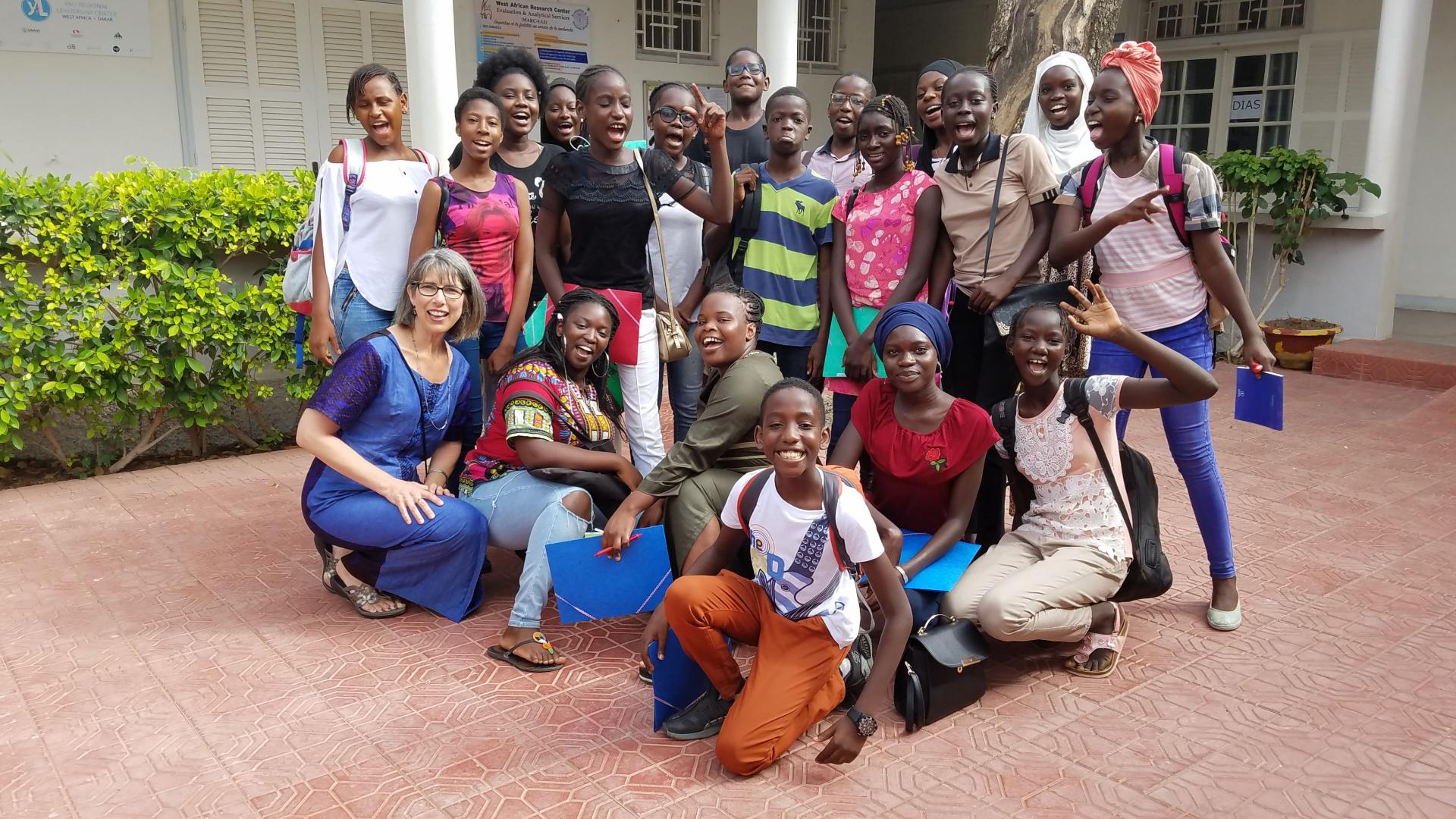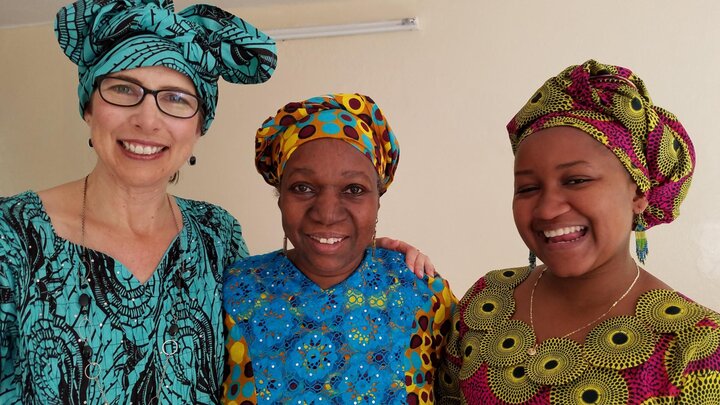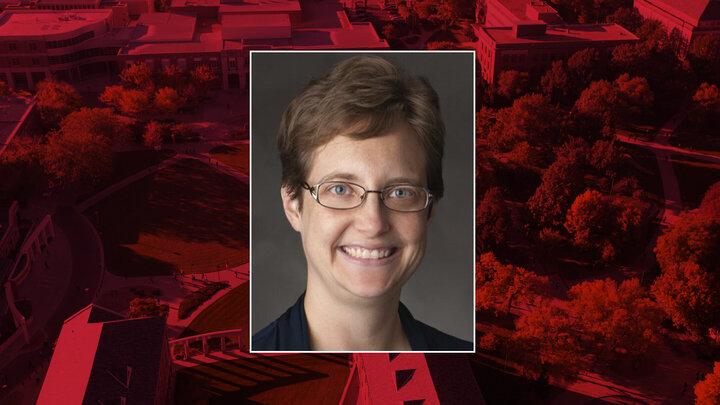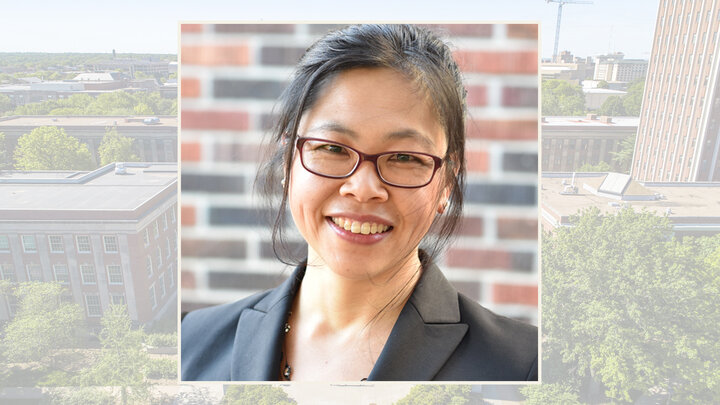I have been a faculty member at the University of Nebraska-Lincoln since 2005, serving both the Center for Science, Mathematics and Computer Education (CSMCE) and the Department of Mathematics. A significant portion of my role is to coordinate and teach graduate courses for K-12 teachers of mathematics continuing their education or working toward earning a master’s degree. One of UNL’s graduate programs is called Primarily Math. It is a renowned and highly effective program for elementary teachers (largely of primary grades) who wish to strengthen their mathematical content and pedagogical knowledge while earning UNL’s designation as a K-3 Mathematics Specialist.
In July of 2018, I had the privilege of traveling to Africa to introduce the Primarily Math program to seven teachers from the Senegalese-American Bilingual School (SABS) in Dakar, Senegal. This experience was one component of the 2018 Afrimath Summer Program. Headquartered in Dakar, Afrimath is an initiative designed to strengthen mathematics education in Senegal and all of Africa by engaging students and teachers in rich learning experiences that deepen their knowledge of mathematics and mathematics pedagogy.
Afrimath founder and director, Masake (Kane) Ly, is a Senegalese native who was a high school math teacher at SABS while she earned her Master of Arts for Teachers degree through UNL’s online program. I served as her online instructor for several courses, and she asked me to be her advisor. Ly traveled to Nebraska to take a summer graduate course, and we developed a friendship that led to our collaboration.
Afrimath consisted of a teacher program and a summer camp for middle school students and culminated in The Dakar Forum on Mathematics and Education. Ly provided the overall coordination for the program and led the summer camp while I led the professional development sessions for the teachers. Our plan is to train a small group of teachers from SABS to become teacher leaders, who will in turn offer the Primarily Math experience to more elementary teachers in Dakar. It is my hope that I can return to Dakar to help make this happen.
I learned a lot about the people, the education system, and the culture of Senegal. While nearly all instruction is provided in French, the “official” language of Senegal, this is not the native language of the majority of the people. The language most commonly spoken in Senegalese homes is Wolof, and there are more than 30 additional dialects spoken in other regions. Nearly every student attending school is a French-language learner while they are learning other subject matter, which adds a layer of complexity to mathematics education in the elementary schools in Senegal.
It was interesting to see the similarities and differences between the traditional algorithms for the basic operations used in Senegal and those used in the U.S.

Photo: Students and counselors attending the Afrimath Summer Camp shared their experiences at the Dakar Forum on Mathematics and Education Forum.
The people of Senegal are welcoming and generous. They pride themselves on being known as “the country of teranga,” the Wolof term for hospitality. Everywhere I traveled, people went out of their way to offer assistance or show me kindness. Even simple cultural traditions emphasize the importance of hospitality, both to guests and to fellow citizens. Each morning of the program, the students and teachers would gather for an opening warm-up session in an outdoor courtyard. Part of the daily routine was to clap and sing a traditional song that nearly everyone in Senegal would have learned as a child. The song was about having pride in your community, whether that community is as small as your class or as large as your country and how extending hospitality within your community brings success and happiness to everyone.
The most generous act of all, for which I was a recipient, was when I was given a Senegalese name. It is traditional for guests to be given the last name of their host family (more evidence of their hospitality), so my Senegalese surname already was “Kane” (pronounced kahn). To determine a first name, the students and teachers met privately to decide. When the selection was made I was ceremoniously led into the room and given the name “Maty” (pronounced mah’ tee), so I now answer both to Michelle and to Maty Kane. Nothing could have made me feel more welcome.




